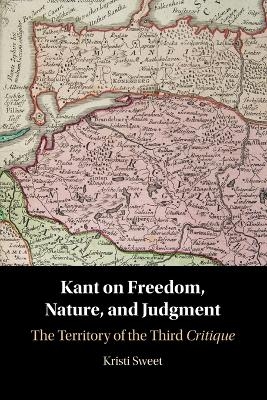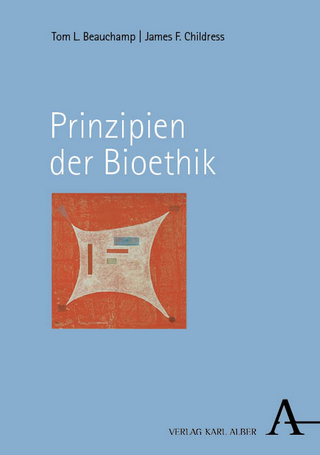
Kant on Freedom, Nature, and Judgment
The Territory of the Third Critique
Seiten
2024
Cambridge University Press (Verlag)
978-1-009-00532-6 (ISBN)
Cambridge University Press (Verlag)
978-1-009-00532-6 (ISBN)
Kant on Freedom, Nature, and Judgment offers an in-depth account of Kant's critical philosophical system, offering new interpretations of his theory of beauty, genius, art, and organicity. It will be valuable for scholars interested in Kant's philosophy, the history of aesthetics, and the history of philosophy.
Kant's Critique of Judgment seems not to be an obviously unified work. Unlike other attempts to comprehend it as a unity, which treat it as serving either practical or theoretical interests, Kristi Sweet's book posits it as examining a genuinely independent sphere of human life. In her in-depth account of Kant's Critical philosophical system, Sweet argues that the Critique addresses the question: for what may I hope? The answer is given in Kant's account of 'territory,' a region of experience that both underlies and mediates between freedom and nature. Territory forms the context in which purposiveness without a purpose, the Ideal of Beauty, the sensus communis, genius and aesthetic ideas, and Kant's conception of life and proof of God are best interpreted. Encounters in this sphere are shown to refer us to a larger, more cosmic sense of a whole to which both freedom and nature belong.
Kant's Critique of Judgment seems not to be an obviously unified work. Unlike other attempts to comprehend it as a unity, which treat it as serving either practical or theoretical interests, Kristi Sweet's book posits it as examining a genuinely independent sphere of human life. In her in-depth account of Kant's Critical philosophical system, Sweet argues that the Critique addresses the question: for what may I hope? The answer is given in Kant's account of 'territory,' a region of experience that both underlies and mediates between freedom and nature. Territory forms the context in which purposiveness without a purpose, the Ideal of Beauty, the sensus communis, genius and aesthetic ideas, and Kant's conception of life and proof of God are best interpreted. Encounters in this sphere are shown to refer us to a larger, more cosmic sense of a whole to which both freedom and nature belong.
Kristi Sweet is Associate Professor of Philosophy at Texas A & M University. She is the author of Kant on Practical Life: From Duty to History (Cambridge, 2013), and numerous essays on Kant's practical philosophy and aesthetics.
Introduction: Out in the Territory; 1. Reason, Hope, and Territory; 2. Reflection, Purposiveness, Metaphysics; 3. 'Life' and the Ideal of Beauty; 4. The sensus communis and the Ground of the Critical System; 5. Genius, Aesthetic Ideas, and a Spiritualized Natural Order; Interlude: Transition to the Critique of Teleological Judgment; 6. The Domain of Nature as System: Ends; 7. Hope and Faith: God in the Critique of Teleological Judgment; Conclusion: To see what good is there.
| Erscheinungsdatum | 31.08.2024 |
|---|---|
| Zusatzinfo | Worked examples or Exercises |
| Verlagsort | Cambridge |
| Sprache | englisch |
| Maße | 152 x 229 mm |
| Gewicht | 345 g |
| Themenwelt | Geisteswissenschaften ► Philosophie ► Ethik |
| Geisteswissenschaften ► Philosophie ► Philosophie der Neuzeit | |
| ISBN-10 | 1-009-00532-4 / 1009005324 |
| ISBN-13 | 978-1-009-00532-6 / 9781009005326 |
| Zustand | Neuware |
| Informationen gemäß Produktsicherheitsverordnung (GPSR) | |
| Haben Sie eine Frage zum Produkt? |
Mehr entdecken
aus dem Bereich
aus dem Bereich


